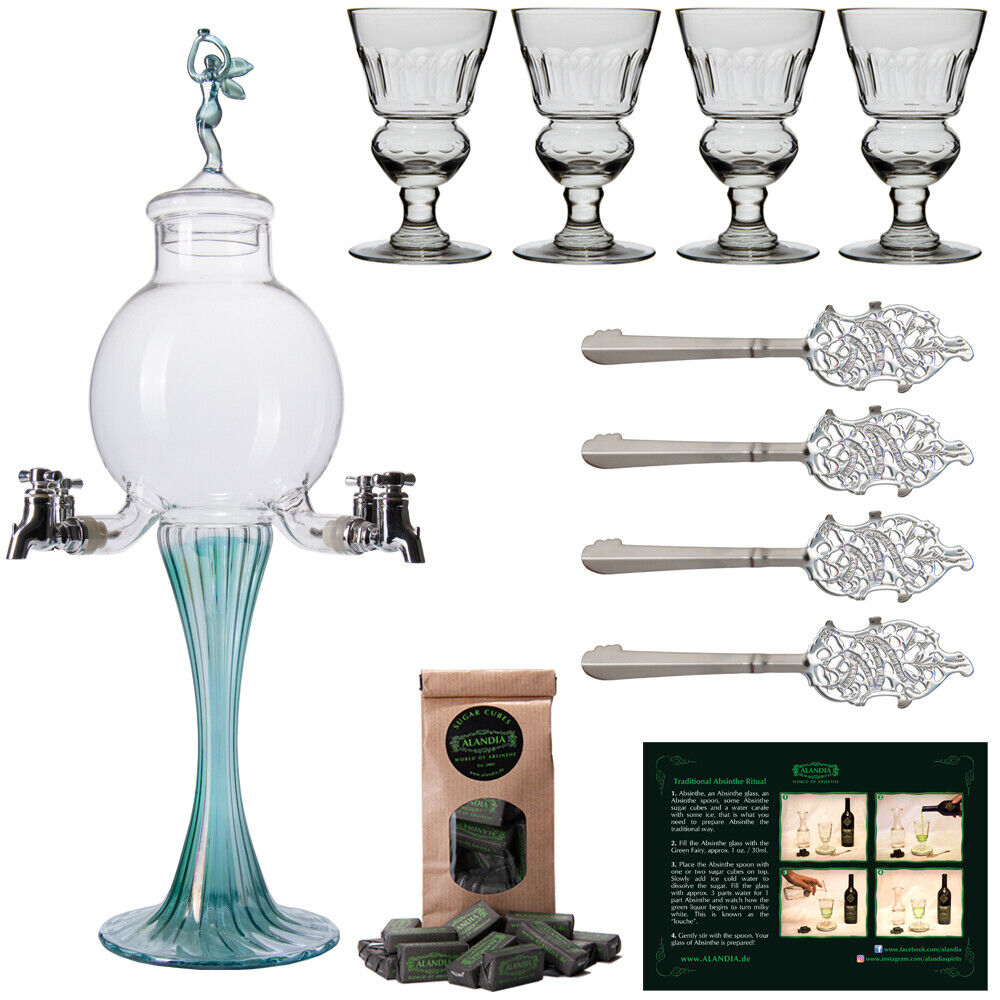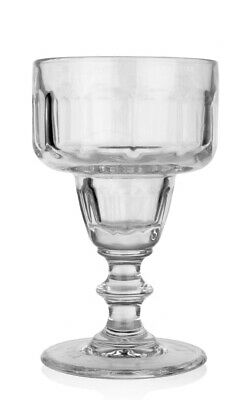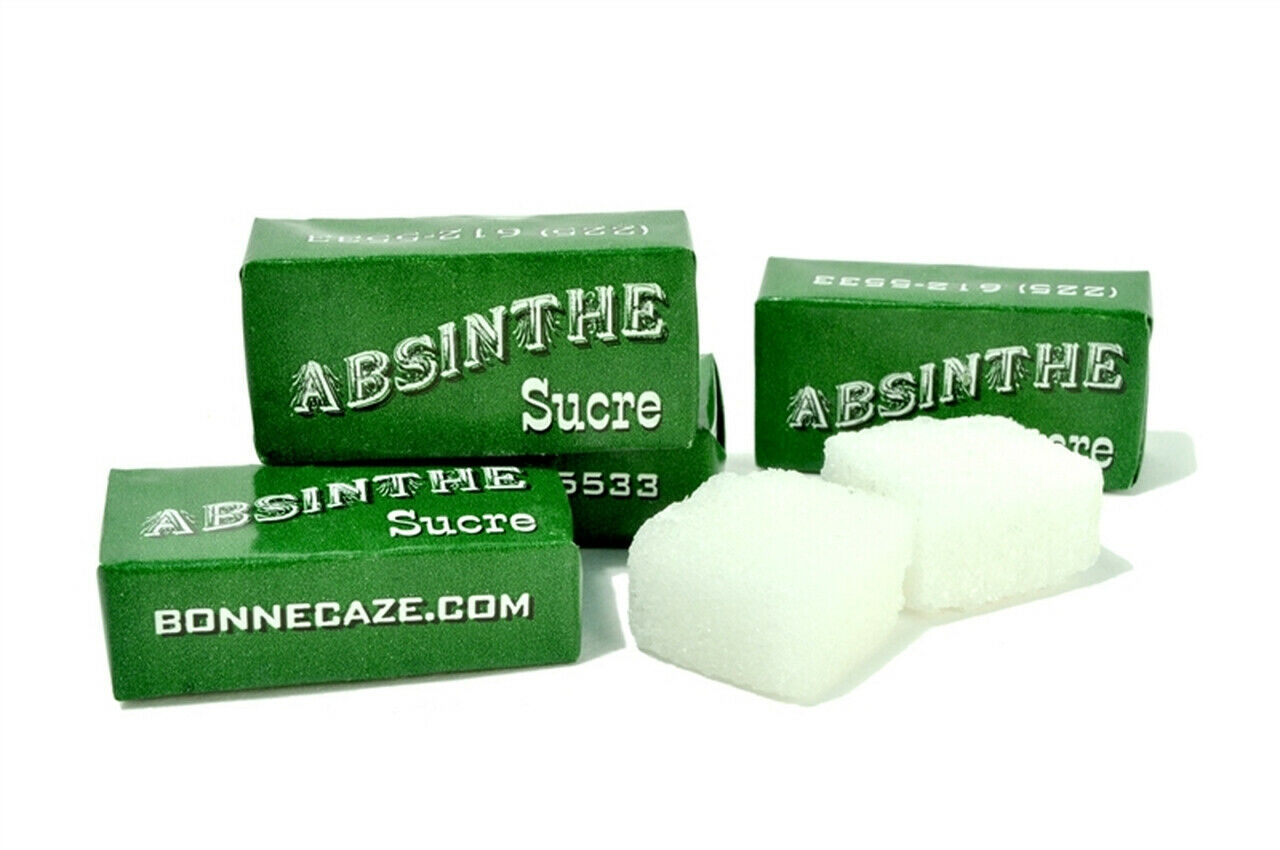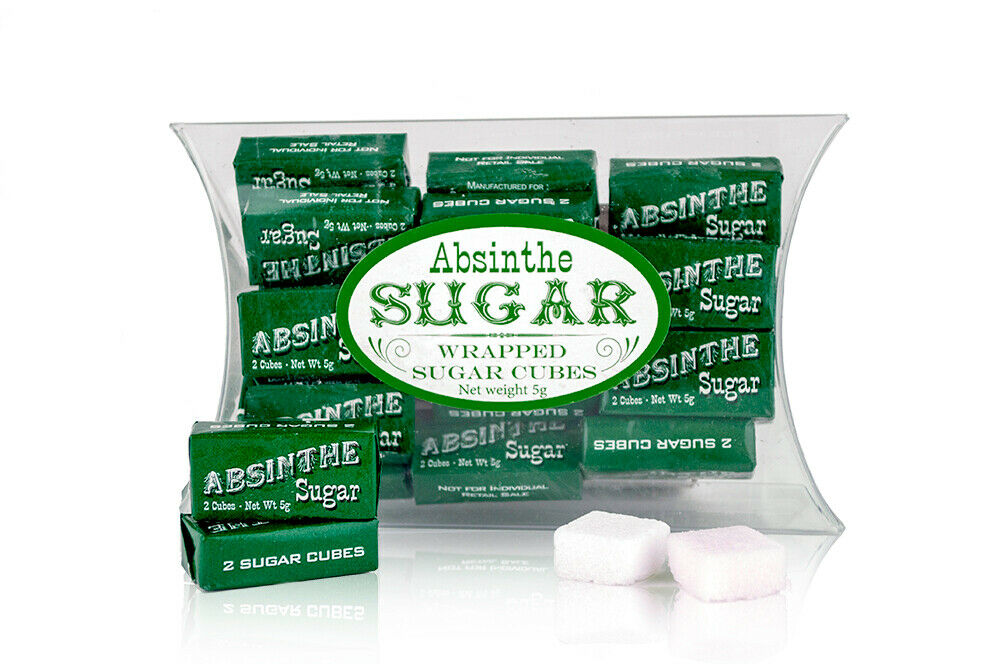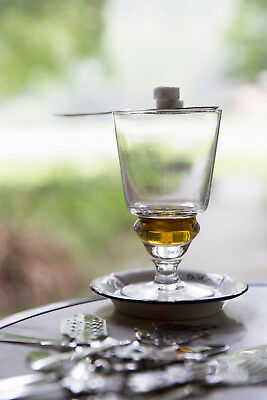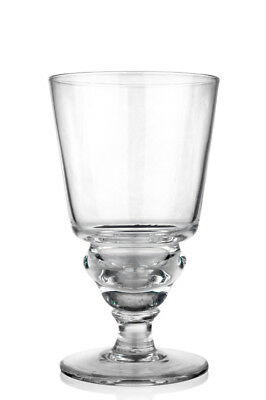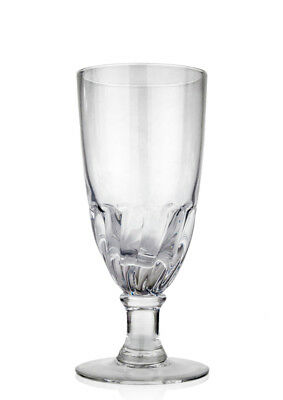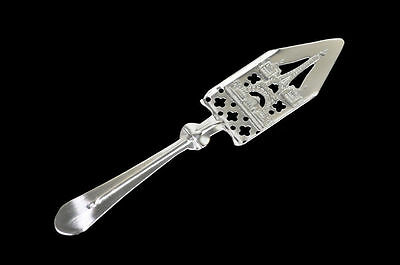-40%
Absinthe Fountain Set Green Fairy | 4 Spouts | 4 Absinthe Glasses Spoons Sugar
$ 121.38
- Description
- Size Guide
Description
ThisAbsinthe Fountain Set
"Green Fairy" has all the accessories you need to traditionally drink Absinthe in a group of four. It includes one beautiful
Absinthe Fountain made of mouth-blown glass
, four
mouth-blown Pontarlier Absinthe Glasses
, four
stainless steel Absinthe Spoons
and one bag individually wrapped
Absinthe Sugar Cubes
. The Absinthe fountain has four silver colored spouts. They are made of plastic to not damage the glass. Additionally you can easily unscrew them for an easy cleaning. The eye-catcher of the fountain is its Green Fairy lid and its blueish-green colored glass. With this Absinthe accessories set up you can experience Absinthe the real way. Because of its high-quality this set is as well perfect as a gift.
Quality Note:
The ALANDIA Absinthe fountains are made in Europe by a glassblower manufactory with a long tradition. They are distinguished from visually similar fountains by their
precise manufacturing without craftsmanship defects
(there are no crooked taps, asymmetries in the glass or too thin glass, which can lead to predetermined breaking points). You will not be dissapointed by its quality.
The included
Absinthe glasses
are original reproductions of the famous "Pontarlier" Absinthe glasses from the Belle Époque era. Made by ALANDIA Barware they are mouth-blown instead of industrially pressed glass. Therefore no disturbing manufacturing seams are present. The glasses have a
reservoir
in the stem to measure just the right amount of Absinthe (1 oz.). Like former originals they are nicely cut to give them a premium and nostalgic look. Overall, the ALANDIA Absinthe glasses are the epitome of an original Absinthe glass. They are world renowned after being featured in a painting made by Charles Maire for the most popular Absinthe brand of the 19th century, Pernod Fils. You can see the original painting in the photo gallery.
The Absinthe fountain set is complete with four high-quality
stainless steel Absinthe spoons
, as well authentic copies of a historical Absinthe spoon, the "Feuilles" spoon. The spoon surface is particularly original because it shows intertwined wormwood leaves (Feuilles = French for leaves). In addition to their authenticity, the spoons are highly functional. The decorative cut-outs in the spoon surface are of such a size that the sugar can drip into the Absinthe together with the water during the Absinthe ritual (more information about the Absinthe ritual can be found further down on the page). The sides of the spoon are slightly bent upwards so that the sugar cube has a stable position on the spoon. The curvature of the handle guarantees a firm fit on the rim of the Absinthe glass. The weight of one Absinthe spoon "Feuilles" is 0.7 oz. Therefore it lies pleasantly heavy in the hand. All in all, the high-quality stainless steel material (no cheap sheet metal, brass or aluminum), the authentic design and the precise workmanship distinguish these Absinthe spoons from simpler alternatives.
One bag of individually wrapped
Absinthe sugar cubes
as well as a card with
information about the traditional Absinthe ritual
complete this beautiful Absinthe accessories set.
Absinthe: Why was it banned?
At the time of the ban, the Green Fairy was considered a drink that made people go crazy and violent. A spectacular murder case in 1905 was decisive: Mr. Jean Lanfray, a Swiss farmer with an obvious alcohol problem, murdered his wife and children while intoxicated. Appalled by the brutality of the act, a trigger was quickly found: The devilish schnapps absinthe, for in addition to several glasses of wine and cognac, the farmer had drunk a glass of the high-proof spirit. The prohibitionists had found what they were looking for, and now they had a media-effective event that justified their interests in banning the drink. In their opinion, absinthe was poisonous, causes hallucinations and leads to a decline of morals and social order. The only help is a ban!
The murder case was a decisive point for the prohibition of absinthe, as it intensified the discussions about the drink, its ingredients and its effects. At first glance, the story seemed to show clearly what absinthe can do diabolical things. However, the farmer had already drunk a lot of (other) alcohol that evening before he finally added two glasses of absinthe. This fact, however, was concealed because the drink was already considered poisonous by many parts of society. The Green Fairy had to be used more and more as a scapegoat for all social problems. Last but not least, the wine industry advocated a ban, because absinthe producers were new competitors on the market, which could be easily removed by banning the drink.
So the question whether absinthe is poisonous or not has always been asked. Fact is, real absinthe is made from wormwood and wormwood contains the active ingredient thujone. Thujone can actually be poisonous. Nevertheless, thujone is only harmful to health in very high doses. Absinthe does not contain so much thujone that we have to worry about our health. This means that absinthe is not poisonous and has therefore been legalized again. It is important to mention here that absinthe did not contain thujone anymore in the past. Historical absinthes were analyzed and the amount of thujone was below the legal amount of today: 35 mg/liter.
Absinthe: How to drink it
First fill the absinthe glass with 0.7 oz (20 ml) of absinthe and then fill the absinthe spoon with one or two sugar cubes. Then pour cold water from an absinthe carafe (or absinthe fountain) over the sugar. Now the Absinthe starts to cloud over, the "Louche" starts. The Absinthe is ready when Absinthe and water are completely mixed. We recommend a mixing ratio of one part Absinthe to three parts water. In the times of the Belle Époque people used to meet at the so-called "Heure Verte", the green hour to drink their glass of Absinthe. T
he Absinthe Glasses Spoons Set comes with a free drinking instruction card
.
